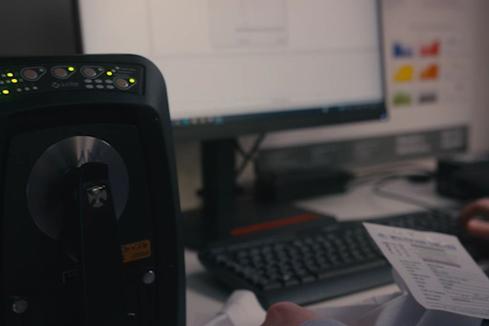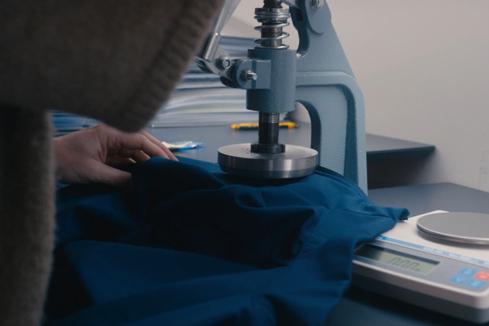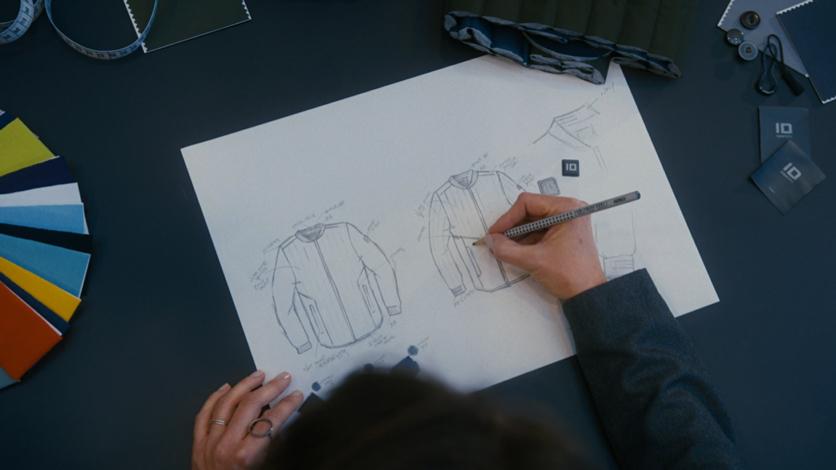INTERVIEW AND INSIGHT
ONLY THE BEST GET TO SPEAK AT ID®
At ID®, an idea must be documented, tested, and meet high standards.
Compliance and Product Manager Dorthe H. Jensen provides insight into how quality and responsibility go hand in hand – from material selection and testing in our Quality Lab to independent certifications.
At ID®, the idea is just the beginning
At ID®, new products begin with a combination of idea development, design, and sourcing – closely aligned with market needs and our existing range. But before they become part of our collection, they must undergo a thorough process. A new product must meet strict requirements for functionality, quality, and durability – and be verifiable through third-party certifications.
“We don’t just start production. We evaluate, test, and document before even considering launching something new. Only the best become reality.”
Different certifications – shared demand for documentation
At ID®, we work with independent third-party certifications such as OEKO-TEX® ORGANIC COTTON, OEKO-TEX® STANDARD 100, and the EU Ecolabel. Each certification has its own focus and standards – but all require extensive documentation and transparency across the entire value chain.
“There is no single common standard. Each certification has its own requirements – for materials, chemicals, traceability, and environmental impact. It demands that we control the entire value chain and can document everything we claim.”

Quality Lab: Where ideas become documented quality
The ID® Quality Lab plays a central role in the development process. Here, materials and products are tested for colour fastness, shrinkage, fit, and washability. We also collaborate with industrial laundries and users in practice to test the clothing under real-world conditions.
“We don’t just develop clothing – we test it, measure it, and push it to the limit. It must endure real life, not just the showroom. Quality and durability are essential for a product to become certified and meet our standards.”

Choosing materials also means rejecting others
A key part of working with responsible products is assessing how materials affect both function and durability. Not all recycled or organic materials can be used in large quantities if we are to maintain our standards for quality and documentation.
“When we use recycled cotton, we keep the proportion of post-consumer waste fibres low. This is because the fibres are shortened during recycling, which can impact durability and comfort. For us, longevity is a crucial part of responsibility.”
Instead, we work with documented materials where we can vouch for both quality and transparency – such as OEKO-TEX® ORGANIC COTTON, made from 100% organic cotton, GMO-free and tested for harmful substances.
A good product starts with transparency
At ID®, it is crucial that both we and our customers know what a product contains and where it comes from. It’s about trust – and we build that through openness and documentation.
“We show what our products are made of and which standards they meet. It doesn’t create uncertainty – it creates transparency.”

When responsibility and quality go hand in hand
A certified product from ID® is the result of many choices – and a lot of work. It is tested in the lab, tried out in practice, and evaluated against international requirements and certifications. But it starts and ends with one thing: quality with care.
“For us, responsibility is not only about sustainability. It’s about developing products that last – through many washes, everyday use, and future demands.”
At ID®, responsibility is not just a task – it’s a part of how we think and work throughout the company.”
– Dorthe Hestbjerg Jensen
Report on CSR, cf. Section 99 a" of the Danish Financial Statements Act.  ID® Responsibility report 2024/2025. View here
ID® Responsibility report 2024/2025. View here




